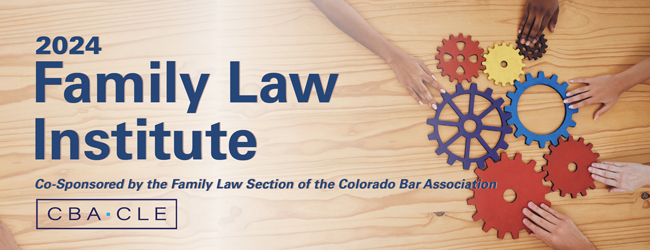Keeping Your Case Out of Court: The Right Neutral May Be Just What You Need

Divorce in Colorado is often expensive and painful experience for parties that gets worse when people can’t reach a settlement and end up in court. The Court systems are increasingly overburdened, understaffed and inexperienced when handling arguably the most impactful cases to individuals that may pass through the courthouse doors. Many practitioners believe that the courtroom is not the place to resolve disputes that impact families and their children. One attorney I spoke to recently compared going to court to cutting a piece of cheese with a machete. A court will never have enough time, background information, or the nuanced understanding of your family to issue a better ruling than you could come up with as part of a settlement.
If you’re starting a divorce, what options do you have to keep your family out of court?
This is an important topic, and I am excited to be speaking about it this week at the 2024 Family Law Institute, an annual conference in Vail, Colorado. This sold-out conference brings together approximately 500 attorneys, judges, mediators, coaches, financial professionals and others, all focused on practical approaches and effective solutions in family law. In our Friday morning presentation, attorney Diane Wozniak, certified divorce financial analyst, Amy Mahlen Melander and I will give attendees important information about different neutrals that are available and offer specific ways they can contribute to a case, with the goal of keeping families out of court.
Following are a few highlights of our presentation, which is also available in its entirety here.
First, courts require mediation before hearing a contested case, and mediation works well when both parties are well prepared, understand the issues ahead of time, communicate well with one another, the mediator and their attorney if they have one. When mediation fails, it is often due to a lack of one of or more of those dynamics.
The Collaborative Divorce process is also an excellent option that allows for a great deal of creativity and customization. Big “C” as these cases are called, involves attorneys as well as a team of neutrals, such as financial and mental health professionals, to help you reach resolutions on all issues without court involvement. There is incentive to settle the case, because failure of the formal collaborative process requires you to start over with new attorneys and likely the involvement of new professionals, including experts.
For others a hybrid approach may work best. Parties and their attorneys can add specific neutrals to the team to help create and maintain a cooperative process, address outstanding issues and reach a settlement outside of court.
There are many different neutrals available, including:
Therapists and Child Psychologists
Therapists help parties collaborate more effectively to create a parenting schedule and may be particularly helpful in cases involving children (or parents) with special needs and advise parties regarding age-appropriate schedules. This option is often more cost effective than a Child Family Investigator (CFI) or Parental Responsibility Expert (PRE), less invasive, and a more cooperative way to resolve differences in opinion on certain aspects of a Parenting Plan. Of course, a therapist can also support parents and children emotionally during this challenging transition.
Divorce Coaches
Divorce coaching is a flexible, goal-oriented process designed to support, motivate, and guide people going through divorce to help them make the best possible decisions for their future, based on their particular interests, needs, and concerns. Divorce coaches can play a crucial role in helping set goals and priorities for a party or parties to a divorce. Divorce coaches may help the client get organized with the paperwork necessary for the process, prepare for and attend mediation, draft the parenting plan, assist with communication and coparenting and take the burden of the emotional overwhelm off the attorney so that he/she/they can stay focused on the legal aspects of the case.
Certified Divorce Financial Analysts (CDFA)
A CDFA helps support individuals, couples, and their attorneys by achieving equitable settlements utilizing tax, investment, retirement and other financial planning concepts and analysis. Clients rely upon this information to understand how the financial agreements made in their divorce will impact their future financial and their ‘net’ outcome. CDFAs can help clients prepare Sworn Financial Statements and Property Division Worksheets, build future budgets, understand complex financial concepts, provide financial analysis and recommendations, run financial projections based on specific scenarios, help prepare clients and their attorneys for mediation, provide pension valuations and other reports, and more.
Certified Divorce Lending Professionals (CDLP)
A CDLP can help parties and attorneys understand how family law and financial and tax planning affect real property and mortgage planning. CDLPs strategize with clients to help them to qualify for a home loan, whether remaining in the marital home or buying a new one. They also help homeowners structure their home loans and even help to structure the divorce settlement in order to meet required lending requirements. A CDLP is trained to navigate the complex financial issues that can arise during a divorce, such as dividing assets and liabilities, refinancing a mortgage, and qualifying for a new mortgage.
The terms of the separation agreement can have a significant impact on a client’s ability to qualify for a loan, and a CDLP has received specialized training in divorce mortgage planning. This can be particularly important for a spouse who was a stay-at-home parent during the marriage and will be responsible for refinancing a mortgage and making the monthly payments going forward.
Certified Divorce Real Estate Experts (CDREE)
CDRE®s have been trained to understand and manage the complexities of real estate and divorce, including how to maximize value, communication with both parties, timing issues and strategic problem solving specific to divorce. Look for realtors with the CDRE® distinction when selecting a neutral for your team.
If you are thinking about adding a neutral to your team, make a list of questions and interview two or three people to find the person you feel best fits your needs. It may seem like a lot of work, and it is! But these are important decisions with long-term consequences. And aren’t you worth that effort? 💝💪🏼
